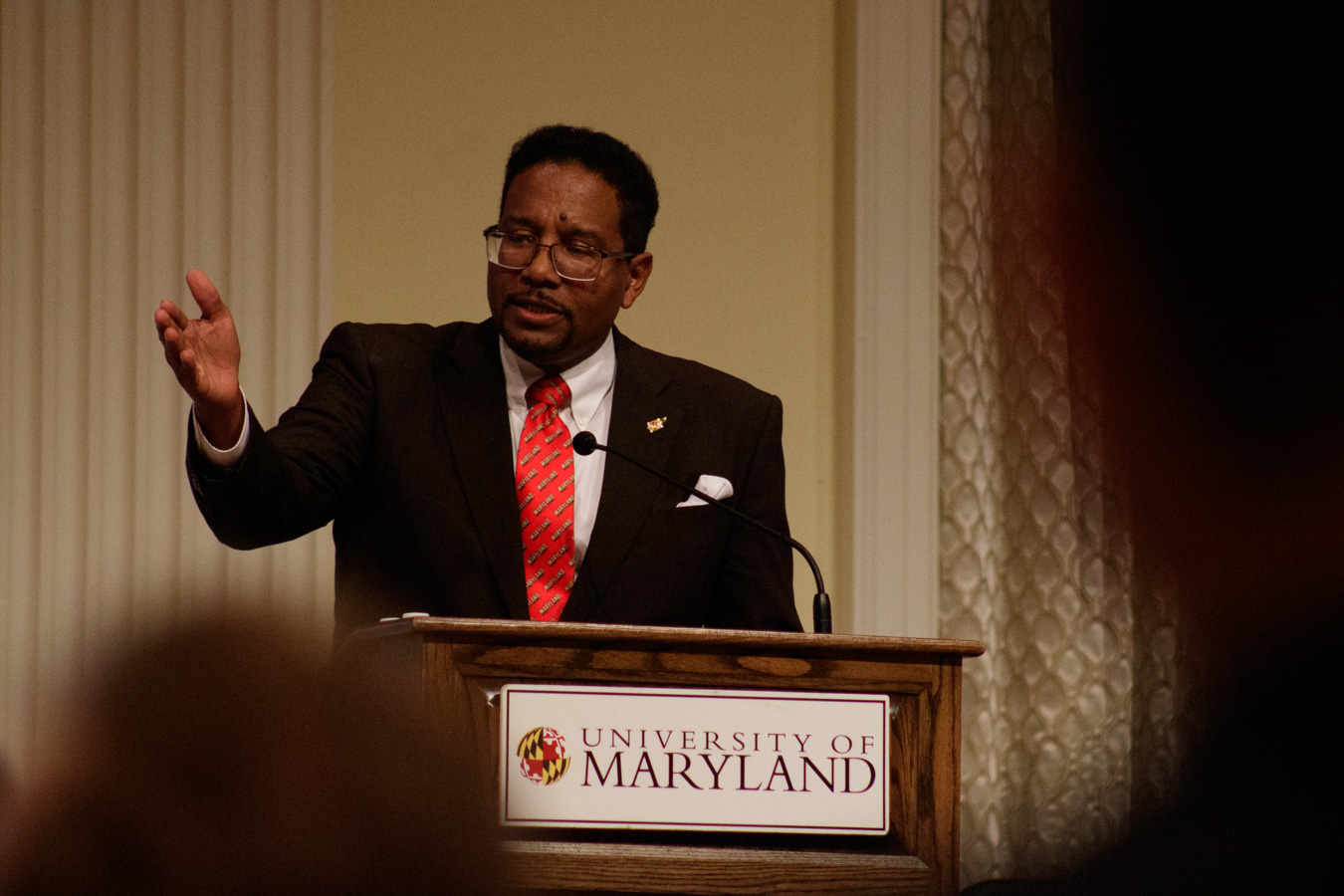University of Maryland president Darryll Pines said this university likely wouldn’t sign onto a U.S. Department of Education proposal asking higher education institutions to make policy changes in exchange for prioritized federal research funding.
During his biannual State of the Campus address on Wednesday, Pines told members of the University Senate that this university has not received any letter from the education department regarding the compact.
The department sent the 10-page “Compact for Academic Excellence in Higher Education” to nine major U.S. universities earlier this month. Several of those universities are refusing to sign it, including the Massachusetts Institute of Technology, where Pines is a member of its Board of Trustees.
“I don’t see us much different than that,” Pines said Wednesday.
Pines said as one of the university’s trustees, he helped oversee the creation of the letter MIT released last Friday announcing it would not sign on to the Oct. 1 compact.
[UMD community members discuss federal funding cuts, university response at union town hall]
If the universities signed the compact, they would receive benefits including access to federal research funding, the approval of student visas and preferential tax treatment in exchange for agreeing to make several listed policy changes, according to a published copy of the compact.
Those commitments included ending “discriminatory admissions processes” based on students’ identity and agreeing to transform or abolish any university practices that discriminate against conservative ideas.
This university also confirmed in a statement to The Diamondback on Thursday that it hasn’t received any communication regarding the compact. This university is working with peer institutions to evaluate the proposed compact, the statement read.
In MIT president Sally Kornbluth’s letter, she wrote that the university rejected the compact because it includes principles that would restrict freedom of expression and institutional independence.
“America’s leadership in science and innovation depends on independent thinking and open competition for excellence,” Kornbluth wrote.
She noted MIT formed a scientific partnership between research universities and the federal government beginning more than eight decades ago, which has had “extraordinary benefits for the American people.” The university still believes this partnership is necessary and beneficial, Kornbluth wrote.
[UMD president disappointed in SGA’s timing of boycott, divestment and sanctions bill vote]
At Wednesday’s meeting, university Senator and fire protection engineering professor Peter Sunderland highlighted this university’s alliance with other Big Ten institutions in a “mutual defense compact.”
This university’s administration approved the senate’s proposal to join the alliance in April amid ongoing federal attacks on higher education, The Diamondback previously reported.
“If you’re able to push back against those restrictions on academic freedom, we’re supporting on the senate,” Sunderland said.
Rutgers University’s senate created the initiative calling on all 18 universities in the Big Ten Academic Alliance to form a coalition to protect their institutional autonomy, research efforts and freedom of speech from the federal government’s influence.
That compact asked all member institutions to contribute to a shared defense fund that would help provide support to any member institution under political or legal attack.
The nine universities asked to participate in the education department’s compact, according to the Associated Press, have until Nov. 21 to decide whether they will sign on.
This story has been updated.



